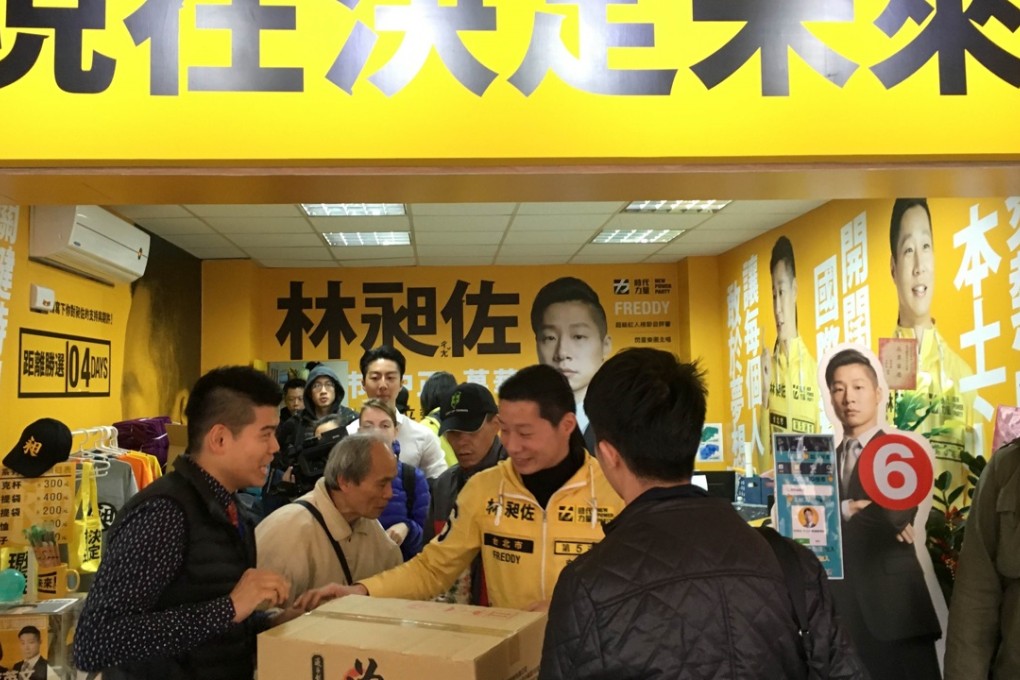A force awakens in Taiwan: vote of sunflower generation could be pivotal in elections

Su Po-chia, 26, has supported the ruling Kuomintang since he could first vote six years ago.
He grew up in the Democratic Progressive Party heartland of Tainan but his parents worked for the government, a traditional source of KMT support.
“Both my parents are civil servants … and since I was a child their views left me with the impression that the DPP was not good. That’s why I still voted for Ma Ying-jeou in 2012, rather reluctantly though,” Su said.
But not this year. Su is among a growing number of disaffected youth energised by protests against the mainland in 2014 and who are looking for an alternative to the status quo. Their ballots could well be a deciding factor in this weekend’s legislative elections and lay the foundation for a “third force” in Taiwanese politics, observers say.
Su’s political awakening began with a course on industrial organisation at Taiwan National University. The course was taught by Jang Show-ling, an academic who championed calls by the 2014 “sunflower movement” for greater scrutiny of a controversial trade deal with the mainland. During the student-led campaign, protesters occupied parliament and forced the suspension of the ratification of the pact.
Su said he joined friends in the protests against the trade pact, and would vote for the DPP’s Tsai Ing-wen in the presidential election. But his two other votes would go elsewhere.